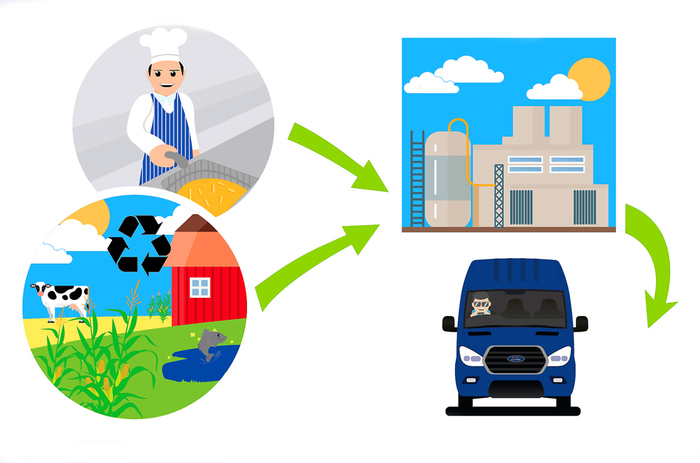Ford has approved the use of hydrotreated vegetable oil (HVO) in its Transit vans. This renewable eco fuel is based on waste oils, including cooking oils already used in restaurants and food laboratories, as well as private kitchens.
The use of HVO - or renewable diesel - in place of conventional fossil fuels can help improve air quality. Greenhouse gases can be reduced by up to 90% compared to normal diesel. In addition, vehicles operating with HVO emit less NOx and particles than other vehicles with a traditionally powered diesel engine, since the fuel does not contain sulfur or oxygen.
Numerous companies from all over Europe collect cooking oil used by restaurants, catering companies and schools. RecOil - an EU initiative supported by the European Commission itself - is working to increase the collection of this waste and increase the production of biodiesel, including increased domestic collection. In addition, HVO, which also incorporates animal fat and fish oil residues, helps diesel engines start more easily at low temperatures. The creation process, which uses hydrogen as a catalyst, implies that HVO burns more cleanly than conventional biodiesel and has a longer lifespan.
Ford has thoroughly tested the HVO on its EcoBlue 2.0 engine and ensures that no modifications are needed to be used in the latest Ford Transit vans. HVO is on sale in selected filling stations in Europe, mainly in Scandinavia and the Baltic countries, either in pure form or as a mixture with normal diesel. If a vehicle needs to stock up on HVO in an area where it is not for sale, the driver can fill the tank with conventional diesel fuel as the two fuels can mix without problems.
Ford Transit EcoBlue 2.0, now you can fill up in the kitchen
2020-01-29T08:46:23.081Z

Authorized use HVO, eco fuel obtained from waste oils (ANSA)




